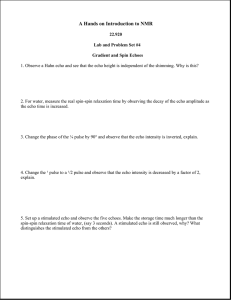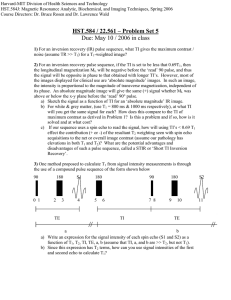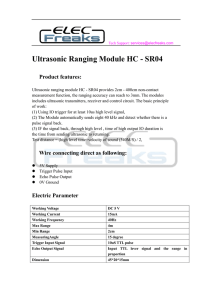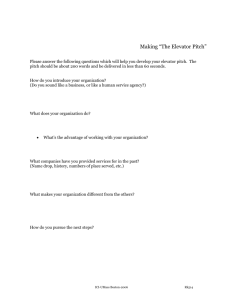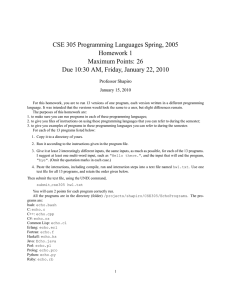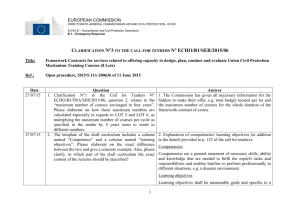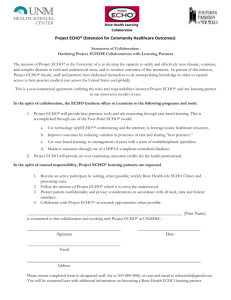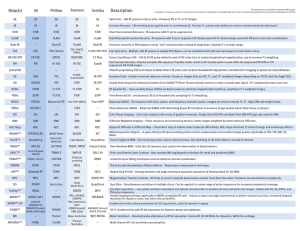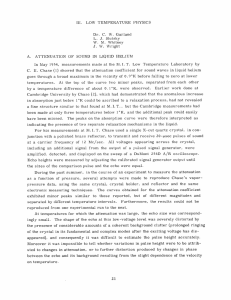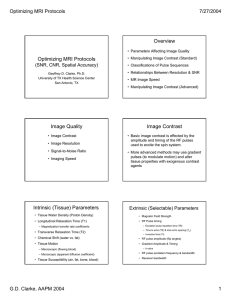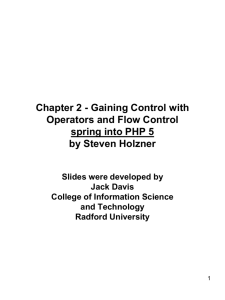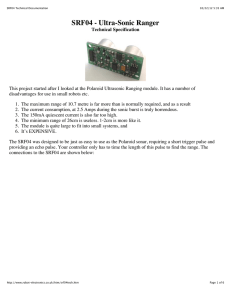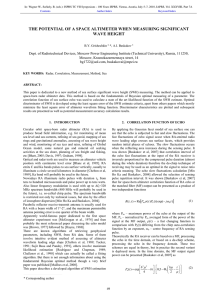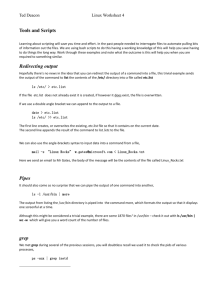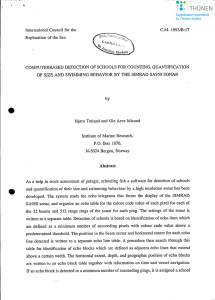0404sound.ppt
advertisement
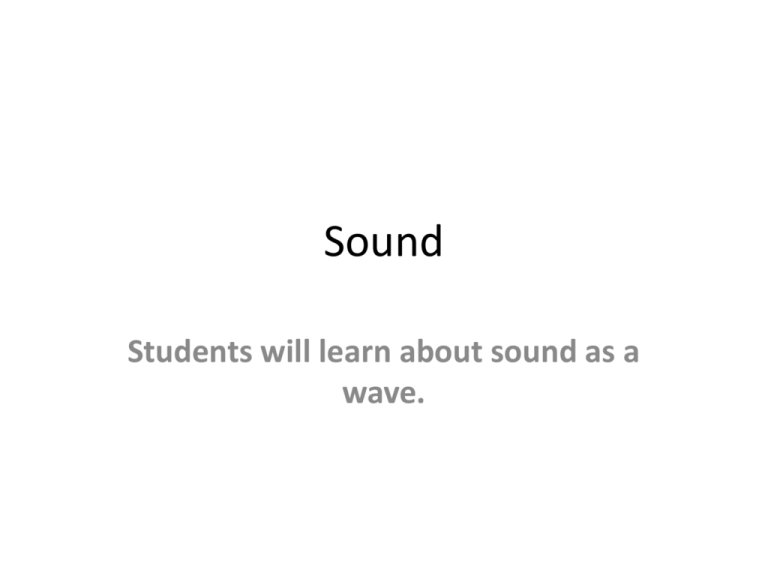
Sound Students will learn about sound as a wave. Sound • Sound is a mechanical wave that requires a material medium for transmission. The energy disturbance is propagated by the molecules of air, water, or solids. • Sound is a longitudinal wave exhibiting simple harmonic motion parallel to the direction of motion. “Condensations” are like crests; “rarefactions” are like troughs. No Sound in Space • Because of an absence of air there is no sound in space. Sound • Loudness is transmitted via the amplitude. louder sound waves have greater amplitude. Pitch is transmitted via frequency. higher pitch sounds have higher frequency lower pitch sounds have lower frequency Speed of Sound through materials • Material – – – – – – – – – – Air (room temp) Air (ice-cold) Helium Hydrogen Fresh water Sea water Iron Glass Aluminum hardwood • Speed (m/s) – – – – – – – – – – 343 331 1,005 1,300 1,440 1,560 5,000 4,500 5,100 4,000 Distance from a lightning strike • “one mile for every five seconds after lightning strikes until the thunder is heard.” • “one thousand feet for every second after lightning strikes until the thunder is heard.” • The speed of sound is 340 m/s so to travel 1,000 m it takes about 3 seconds. One mile is 1.6 kilometers so the time to travel one mile is 1.6 x 3 = 5 seconds. Distance by echo • • • • • Source generates a pulse of sound (“yells”) Sound travels across space Sound reflects back as “echo” Time measured is (pulse plus echo) Use ½ of the (pulse plus echo) time times speed to calculate distance. Example • If you make a pulse of sound (“yell”), and it reflects back as an echo with a total time of 2 seconds. Calculate the distance. • ½ of 2 seconds is 1 second • Speed of sound in air is 340 m/s so 1 second times 340 m/s is 340 meters Sonar • Ships use “sonar” to measure undersea distances. • Ships put out pulses. • The pulse reflect off objects and return as echoes. • Ships look for the bottom of the sea, shipwrecks, schools of fish, pods of whales. Ultrasound • Diagnostic testing uses ultrasound in the range of 20 kiloHertz to 100 KiloHertz • High frequency sound means small wavelengths. • Diagnostic testing for pregnancy, tumors, kidney stones, gall stones, pockets of fluid, brain, heart, liver, and kidneys. Doppler Effect (J. C. Doppler, 1842) • Applies to all waves • If there is motion between the source and the observer. • If the distance between the source and the observer decreases, the “perceived” frequency increases (higher pitch). • If the distance between the source and the observer increases, the “perceived” frequency decreases (lower pitch). Group Activity Questions • 1. Police car siren emits at a frequency of 1600 Hertz. What frequency would you hear at rest and the car is at rest? What frequency would you hear if the car is moving 25 m/s toward you? What frequency would you hear if the car is moving away from you? Group Activity Questions • 2. A hiker determines the length of a lake by listening for the echo of her shout reflected by a cliff at the far end of the lake. She hears the echo 1.5 seconds after shouting. Estimate the length of the lake. • 3. A sailor strikes the side of his ship below the water line. He hears the echo of the sound reflected from the ocean floor 2.0 seconds later. How deep is the ocean floor?

